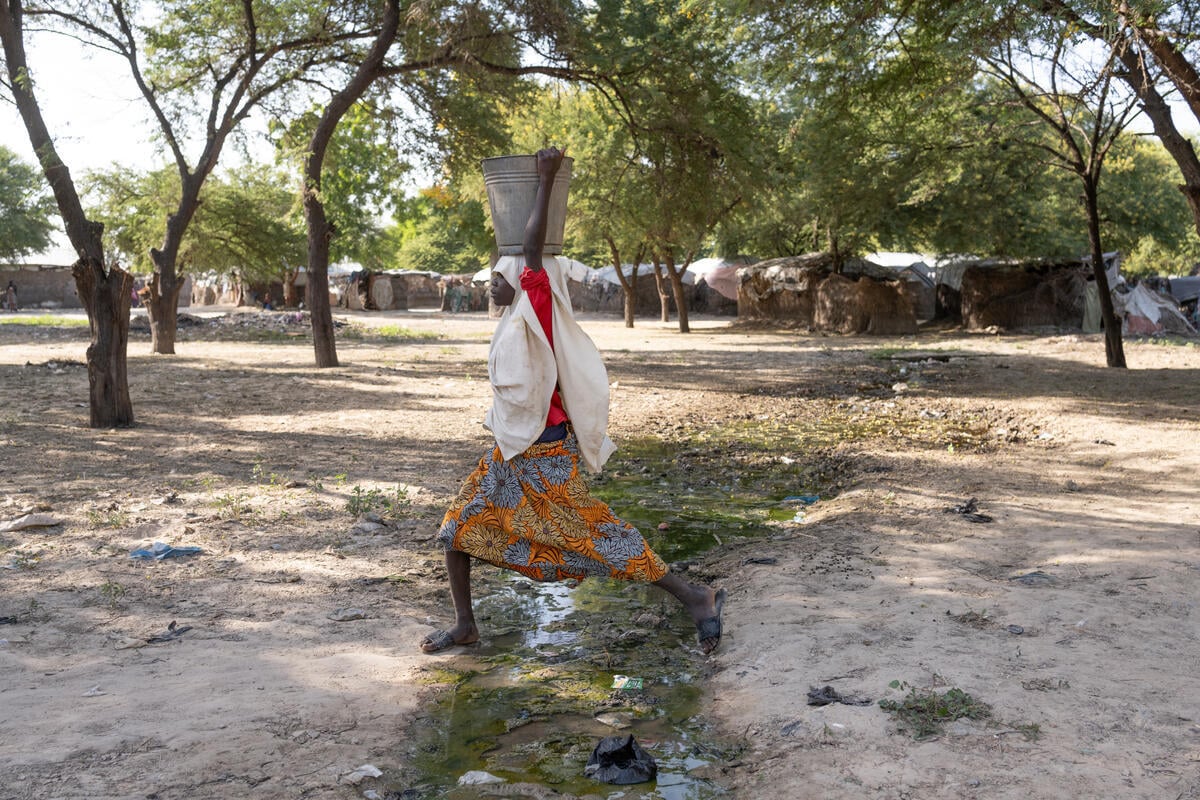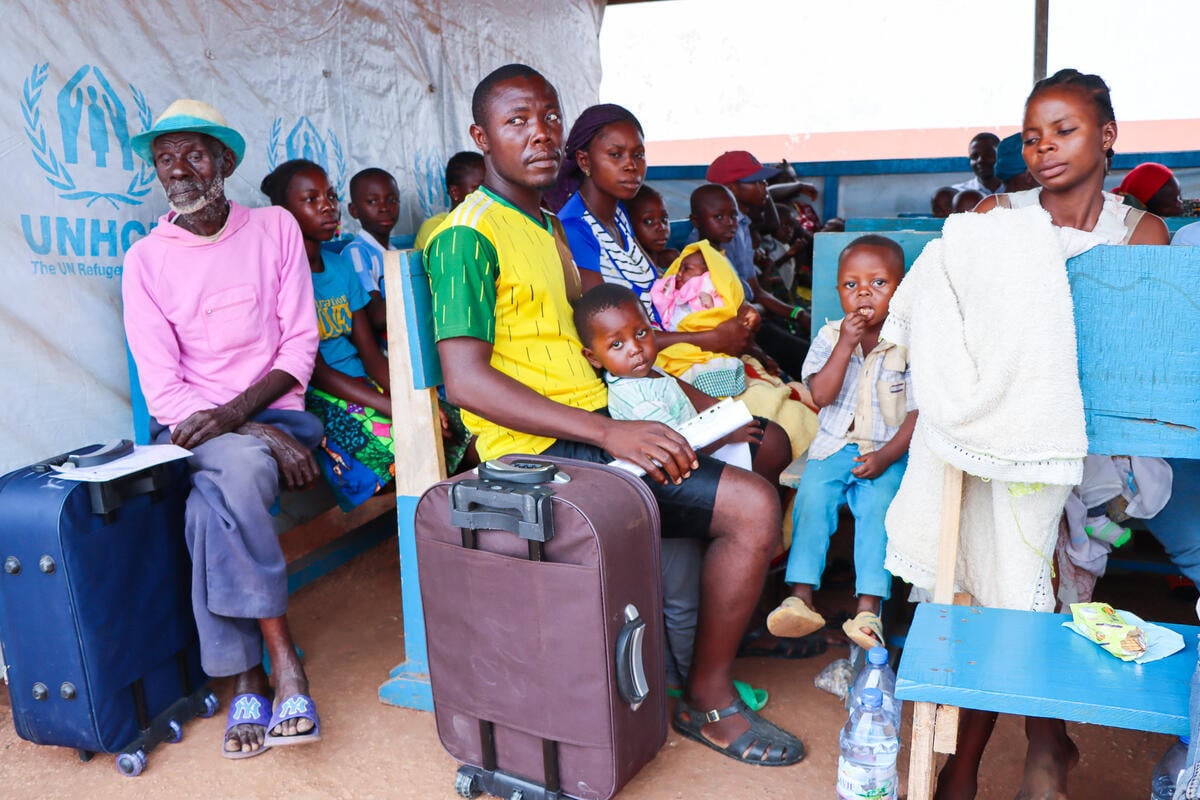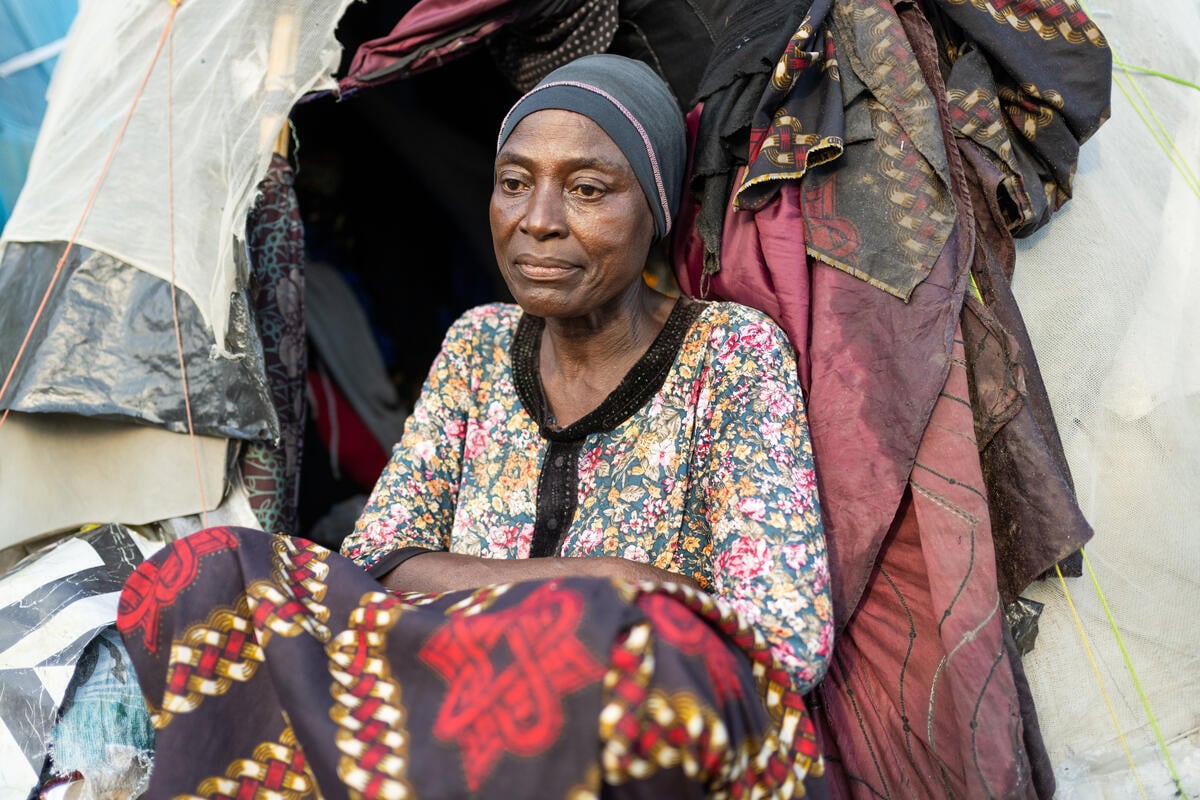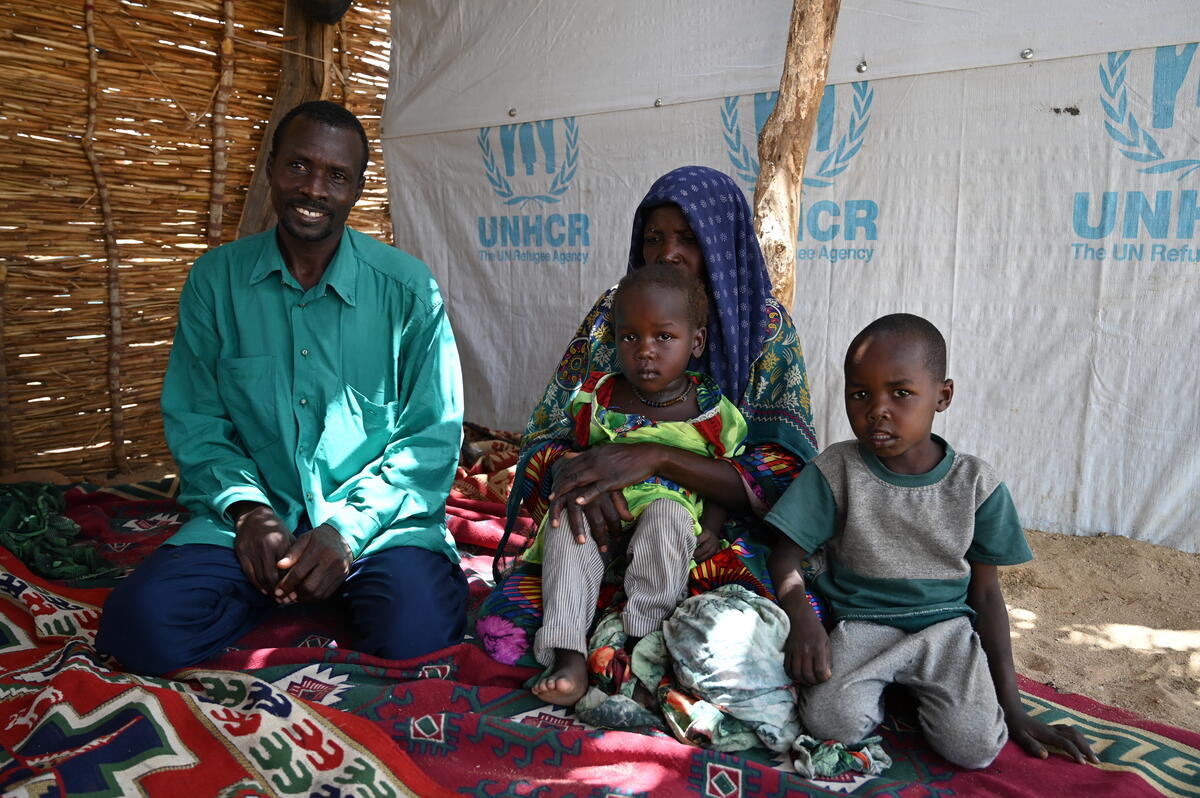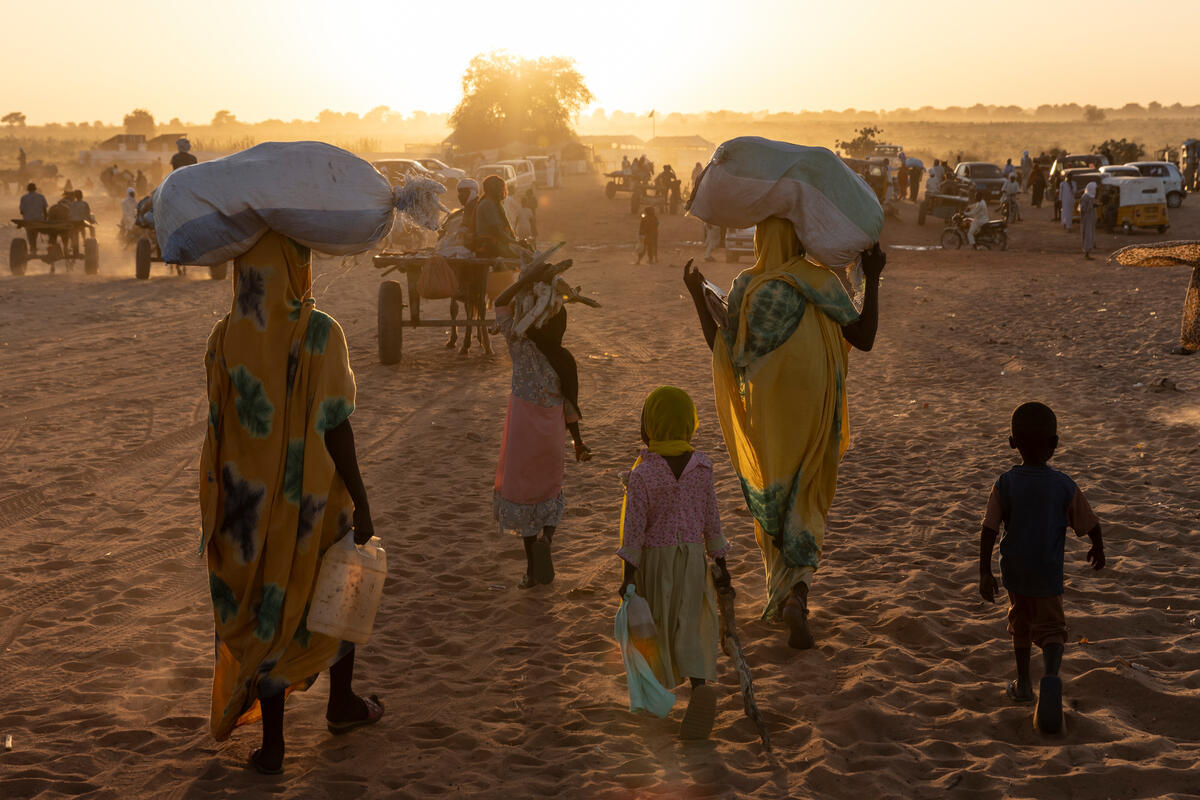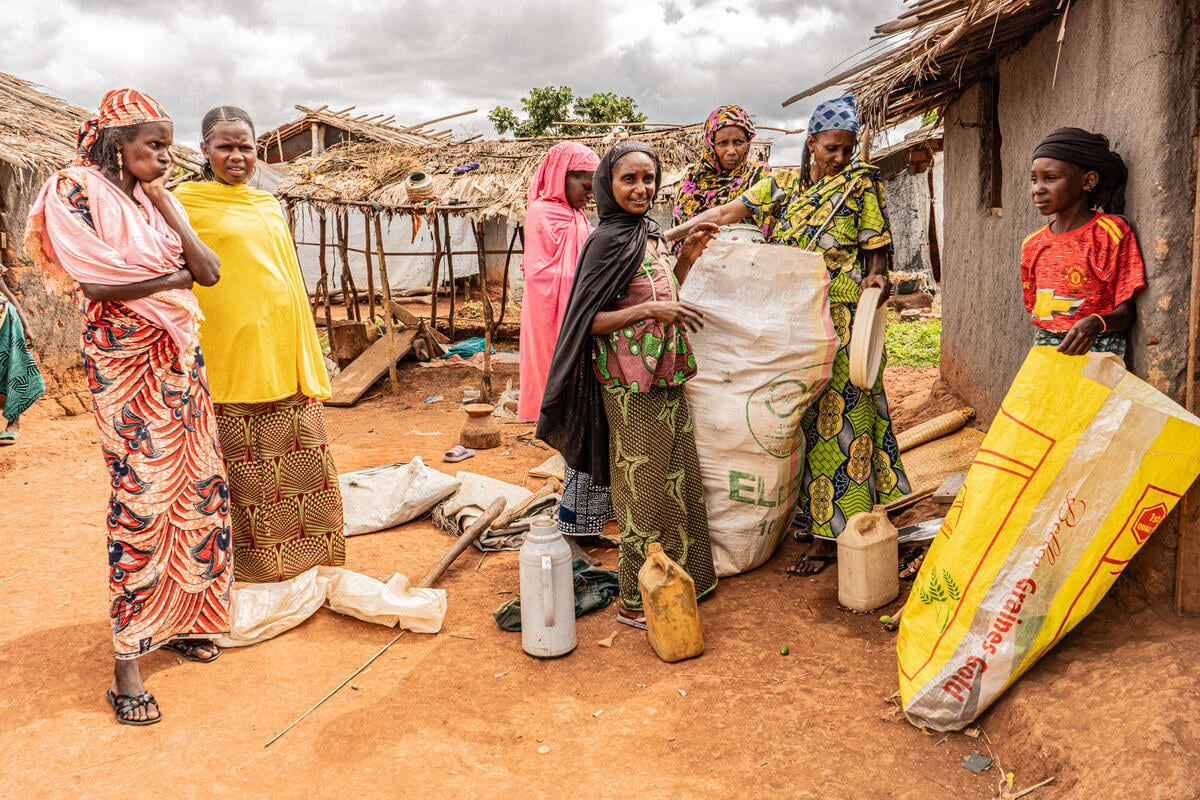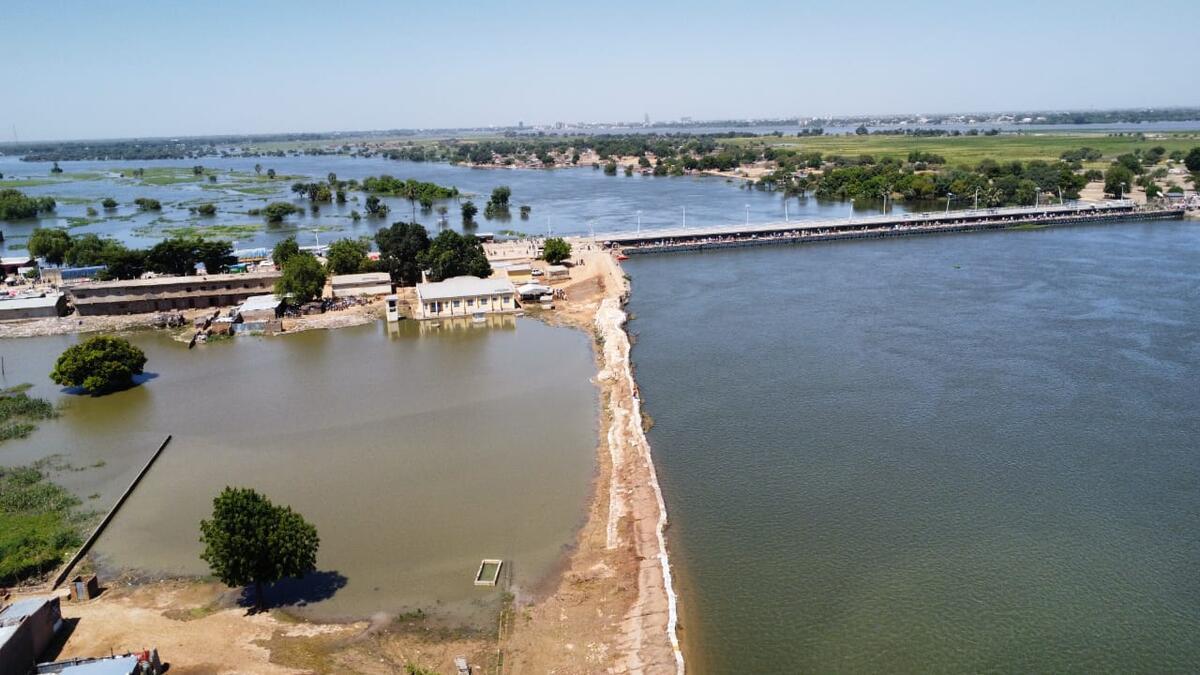As violence spills over to countries neighbouring Nigeria, UNHCR calls for urgent humanitarian access to the displaced
As violence spills over to countries neighbouring Nigeria, UNHCR calls for urgent humanitarian access to the displaced
With the violence that has plagued north-eastern Nigeria now spilling over into Niger, Cameroon, and Chad UNHCR is calling for urgent humanitarian access to refugees and internally displaced people in these countries to provide much-needed emergency assistance.
In Niger, fighting broke out last week in the town of Bosso near Lake Chad in the southern region of Diffa, between the Niger national armed forces and insurgents from Nigeria. This has been followed by a series of attacks in Diffa town against civilians, including by suicide bombers. Fear and panic are spreading fast, and large parts of the population of Diffa are moving further west, towards the city of Zinder. At present UNHCR has no confirmed figures for the internally displaced, but we fear that the scale of displacement is high: Prior to the attacks Diffa had a population of 50,000 - today the town is virtually empty.
Thousands have fled other towns and villages of the region. While most of the internally displaced are hosted in local communities, there are serious shortages of food and clean water. This situation is being further exacerbated, as shops remain closed and humanitarian actors have had to significantly reduce their activities in the Diffa region because of the general insecurity. At present there are no humanitarian actors left in Bosso.
In all, more than 100,000 people have fled north-eastern Nigeria into Niger, both Nigeria refugees and Niger returnees, since the state of emergency was declared in May 2013 in Adamawa, Borno and Yobe States. Initially the refugees and returnees lived among the host population, but their growing numbers required establishing two camps, Sayam Forage and Kablewa, located in safer areas away from the border with Nigeria. As well as providing more safety, the camps, which opened in January, also facilitate the delivery of humanitarian assistance.
When last week's violence erupted in the Diffa region, some 700 refugees had already been moved to the Sayam Forage camp. While UNHCR and other agencies are still delivering assistance to them, we have been unable to access displaced people outside camps, whether at the border areas, or in Bosso or Diffa towns, because of the recent attacks. We are extremely concerned about the humanitarian situation, as several thousand people are at present without any assistance. We are working with authorities to securely deploy aid workers as soon as possible and at the same time we are preparing for rapid evaluation and response assessments.
In Cameroon the situation is as worrying, with reports of killings, abductions and brutal violence in the country's Far North region near the border with Nigeria. An assault last week on the border town of Fotokol and the killing and kidnapping of several passengers on a local bus over the weekend are just the most recent examples. Insecurity is making it increasingly difficult for our teams to access the border areas where refugees arrive and from where we relocate them to the Minawao refugee camp, some 120 kilometres away. Since the beginning of the year, over 9,000 Nigerian refugees have fled into Cameroon and been moved to the camp where they are receiving emergency assistance, including food, medical care, shelter material and basic household items such as mats, blankets and cooking utensils, as well as soap. UNHCR has registered over 40,000 Nigerian refugees in the Far Nor th to date, and 32,000 of them have moved to Minawao.
The violence in Far North region is affecting tens of thousands of local residents too. As many people have moved in with relatives and host families it is difficult to ascertain the scale of the internal displacement. UNHCR is working closely with the Government of Cameroon and humanitarian partners to determine the scope and evaluate the situation on the ground, identify and locate the IDPs and to draw up a humanitarian response.
In Chad, some 3,000 Nigerian refugees were registered as of the end of 2014. A further 15,000 have fled into Chad since then and the attacks around on military installations and civilian populations in and around the north-east Nigerian town of Bagakawa. The Prime Minister of Chad has called for the humanitarian community to support Chad in dealing with the influx of Nigerian refugees considering the dire socio-economic context of the country. Given the importance and proximity of Bagakawa town to Chad and considerations there including growing anxiety about the safety of the main corridor supplying Chad's imports through Cameroon, the Chadian Parliament approved the deployment of troops into Cameroon; Chadian forces are also said to be in Nigeria. Chad, Cameroun and Niger have engaged their armed forces to fight militants, including as part of the "Communaut&e acute; du Bassin du Lac Tchad", a regional body which also includes Benin.
Refugees and returnees have been received in a number of sites in the Lake area. But security is a major concern for all humanitarian agencies, and for the refugees themselves - many of whom are said to be moving on to Niger rather than move on to a newly identified site for refugees at Dar-es-Salaam (which has the capacity for at least 12,000 but only contains 3,000). Many refugees remain unreachable in the various islands. As of this morning, we have been receiving information of a new and lethal attack on Ngouboua, a village in the Lake Chad area where many refugees have been staying. We are in the process of seeking further detail.
UNHCR in Chad is working closely with CNARR, UN agencies and partners to provide assistance including in the areas of protection, food, child protection, and sanitation and shelter. Others services such as education and livelihoods will be expanded once more refugees are installed.
In total, the violence in north-eastern Nigeria has caused more than 157,000 people to flee into Niger (100,000), Cameroon (40,000) and Chad (17,000). A further nearly one million people are estimated to be internally displaced inside Nigeria, according to the country's National Emergency Management Agency.
For more information on this topic, please contact:
- In Dakar (Regional), Helene Caux on mobile + 221 77 333 1291
- In Cameroon, Ndeye Ndour on tel: +237 79516767
- In Chad, Mamadou Dian Balde on mobile: + 235 680 005 21
- In Nigeria, Angele Dikongue-Atangana on tel: +234 8181530428
- In Niger, Karl Steinacker on tel: + 227 921 931 46
- In Niger, Benoit Moreno on mobile + 227 92192417
- In Geneva, Adrian Edwards on mobile +41 79 557 9120

